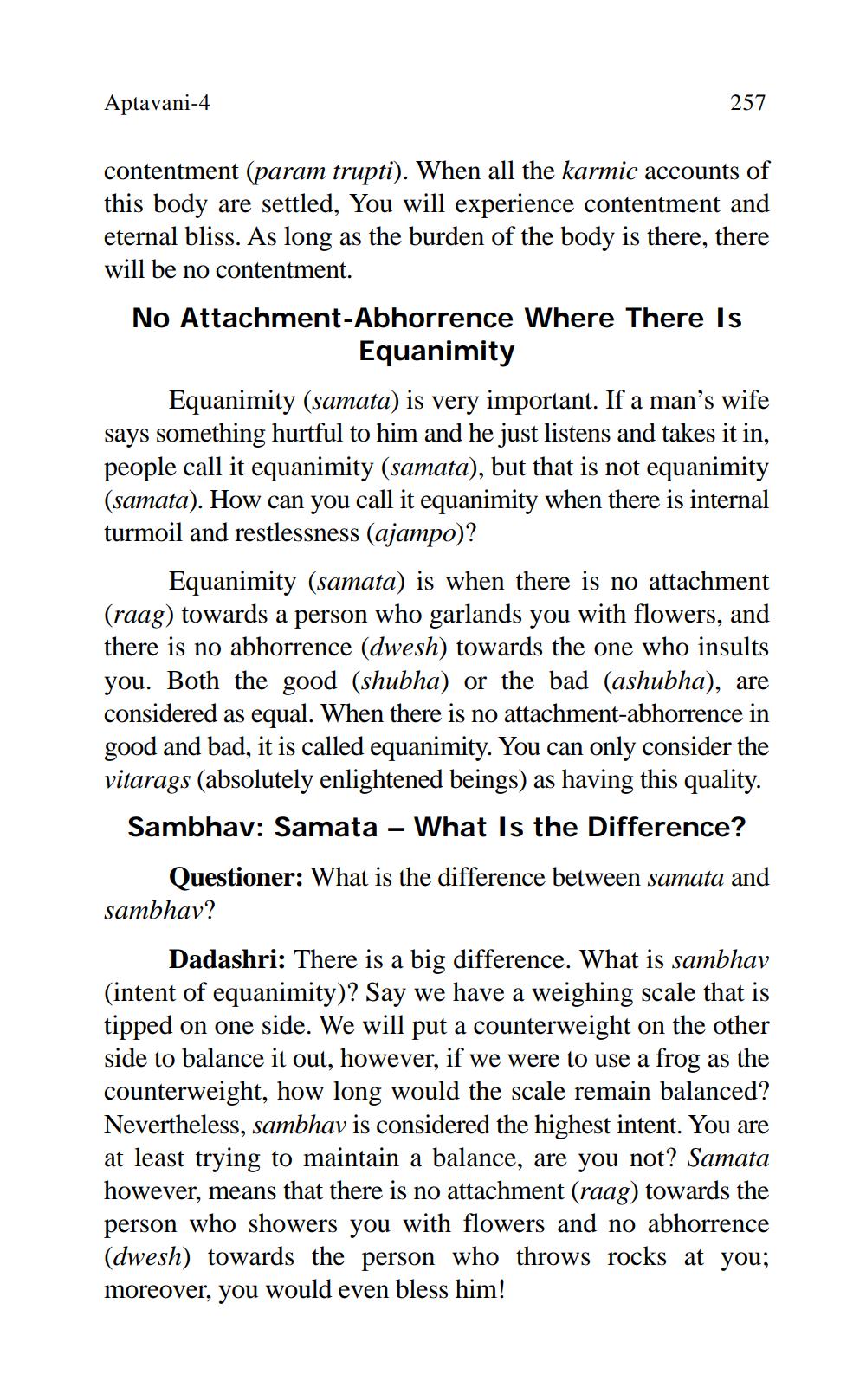________________
Aptavani-4
257
contentment (param trupti). When all the karmic accounts of this body are settled, You will experience contentment and eternal bliss. As long as the burden of the body is there, there will be no contentment.
No Attachment-Abhorrence Where There Is
Equanimity
Equanimity (samata) is very important. If a man's wife says something hurtful to him and he just listens and takes it in, people call it equanimity (samata), but that is not equanimity (samata). How can you call it equanimity when there is internal turmoil and restlessness (ajampo)?
Equanimity (samata) is when there is no attachment (raag) towards a person who garlands you with flowers, and there is no abhorrence (dwesh) towards the one who insults you. Both the good (shubha) or the bad (ashubha), are considered as equal. When there is no attachment-abhorrence in good and bad, it is called equanimity. You can only consider the vitarags (absolutely enlightened beings) as having this quality. Sambhav: Samata - What Is the Difference?
Questioner: What is the difference between samata and
sambhav?
Dadashri: There is a big difference. What is sambhav (intent of equanimity)? Say we have a weighing scale that is tipped on one side. We will put a counterweight on the other side to balance it out, however, if we were to use a frog as the counterweight, how long would the scale remain balanced? Nevertheless, sambhav is considered the highest intent. You are at least trying to maintain a balance, are you not? Samata however, means that there is no attachment (raag) towards the person who showers you with flowers and no abhorrence (dwesh) towards the person who throws rocks at you; moreover, you would even bless him!




